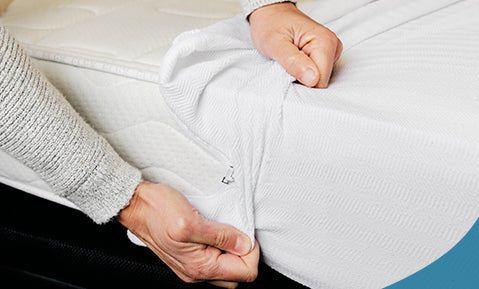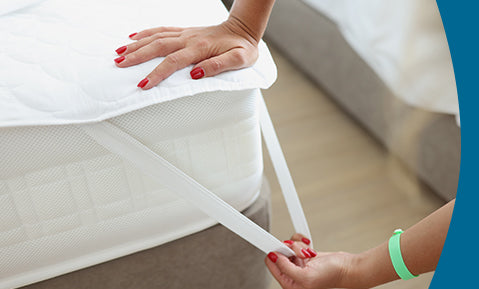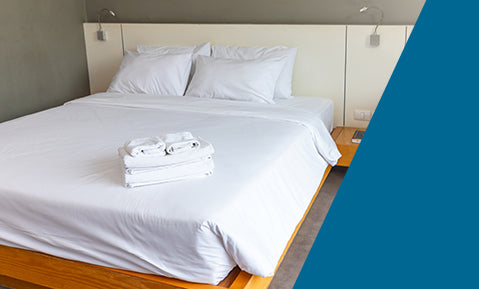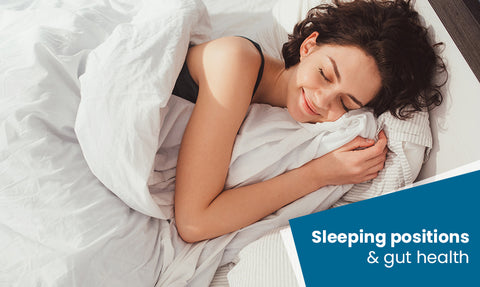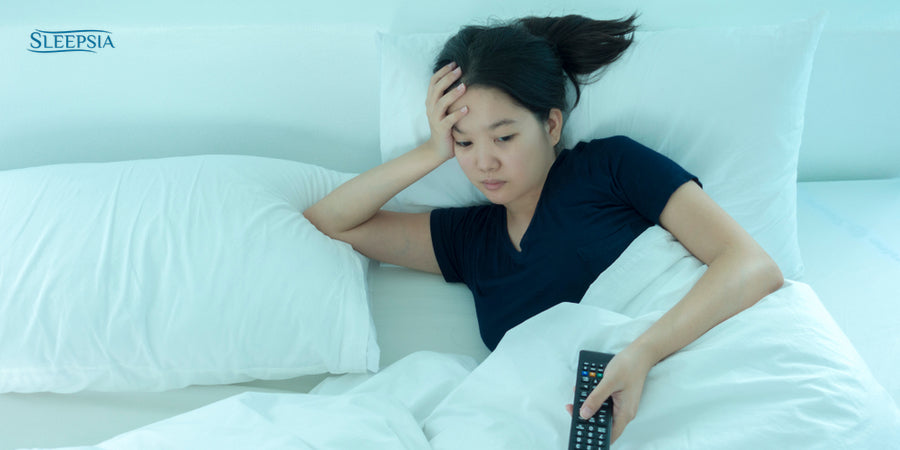
We’ve all been there at some point in our life, waking up all day to complete a particular task before a major deadline. And we’ve been in such situations again and again: in school, in university, and even in our jobs.
All nighters seem like an amazing idea as they enable us to get a lot of work done in the least amount of time.
But in the long-term there’s a price to pay, and that price is your physical and mental health.
In this blog, you’ll learn more about the impact of all nighters on your mental and physical health.
All-nighters explained!
When you need to get work done before a particular deadline, all-nighters seem to be the best option. Many of us skip out on our sleep and force ourselves into complete sleep deprivation simply to meet the deadline.
But apart from study or work, many people today pull all-nighters to:
- Play video games
- Binge watch a series
- Chat or party with friends
Because of these leisure activities, all-nighters have become more frequent, and their frequency is taking a toll on people’s physical and mental health.
And some people deprive themselves of sleep for more than 24 hours, further exacerbating the negative effects.
Note: All-nighters are a person's choice, as opposed to insomnia, which is a health issue that disrupts the ability to stay and fall asleep.
Here’s how sleep deprivation progresses:
After 24 hours
You’ll feel the urge to sleep, but you won’t experience any major health issues. Other symptoms may include:
- Irritability
- Mood swings
- Brain fog
- Impaired cognitive abilities
- Tremors
- Lack of balance
- Puffy eyes
After 36 hours
This is where the urge to sleep becomes very intense.
People start having microsleeps, an ephemeral sleep which they don’t even remember. These small sleeps last for no longer than 30 seconds.
Because the brain slows down and isn’t able to regulate itself properly, your cognitive performance goes down the dump. And you may even experience:
- Increased appetite
- Fatigue
- Changes in behavior
- Very slow reaction time
- Slow processing of information and cues from your environment
After 48 hours
This is the stage in which people start to hallucinate and experience the following symptoms:
- Severe anxiety
- Even more irritability
- Extreme fatigue
After 72 hours
After 3 days of sleep deprivation, you’re going to experience some symptoms of psychosis. You’ll start experiencing:
- Delusion
- Illusion
Your thinking will be completely disordered and distorted. You’ll not be able to work with the cues provided from your environment.
However, once you get enough sleep, the symptoms of psychosis will disappear.
Effects of all nighters
Pulling an all-nighter may not impact your health, but regular all-nighters do.
To recover from damage and process information and emotions, sleep is essential, and a lack of it can even increase your risk of early death.
As your endocrine system functions according to the circadian rhythm (sleep-wake cycle), sleep deprivation can lead to hormonal imbalances, which may damage your physical and mental health.
Effect of all-nighters on cognitive function
Sleep deprivation has a serious impact on your cognitive abilities, effects that include:
- Impaired thinking: your ability to think, along with multiple brain functions, is immediately reduced because of a single night of sleep deprivation.
- Inability to focus: when sleep deprived, a person can’t focus on a particular task.
- Slow reaction time: according to research, one day of sleep deprivation is comparable to being drunk.
- Difficulty in following instructions: sleep deprivation decreases your mental place keeping ability, which enables you to follow a set of instructions to accomplish a task.
Because of decreased ability to process information, the state of sleep deprivation is a lot similar to the state of being drunk.
According to estimates by CDC, drowsy driving causes 6,000 deaths per year.
And the productivity loss per year caused by sleep deprivation is estimated to be over $400 billion in the United States alone.
Effect of all-nighters on mental health
Poor sleep is strongly linked with anxiety, depression, and bipolar disorders.
Because of a lack of sleep, our body experiences stress, which triggers the release of cortisol, the stress hormone. Increased stress and lack of sleep result in more anxiety and depression.
Further, one night of sleep deprivation is enough to worsen a person’s emotional state and cause more anxiety and irritability.
And the other health conditions that result from sleep deprivation further exacerbate a person’s mental health and lower quality of life.
Effect of all-nighters on physical health
Because of its impact on our entire body, sleep is essential and a lack of it can increase the risk of:
- Cardiovascular disease: several studies have found a strong link between sleep deprivation and cardiovascular problems.
- Obesity: sleep deprived people tend to consume more calories because of increased hunger. So poor sleep can lead to increased weight and obesity, which brings on risks of its own.
- Impaired immune system: lack of sleep impairs your immune system and makes you more susceptible to infections.
- Chronic pain: sleep deprivation increases your risk of pain. And it can even exacerbate any pain that you may be experiencing at the moment.
- Diabetes: because of sleep deprivation, our body may automatically alter the way in which it processes glucose. So insufficient sleep has a negative impact on your body’s ability to regulate blood sugar.
Effect of all-nighters on sleep pattern
Pulling an all-nighter has a serious impact on your sleep pattern. Our mind and body function on the basis of established habits. So when we break these habits, our circadian rhythm, the sleep-wake cycle, cannot function properly.
Ideally, a regular sleep schedule enables your body to remember the time at which it needs to release melatonin, the sleep hormone. But regularly getting out of your sleep schedule can throw off this rhythm and make it difficult for you to fall asleep.
Yet research suggests that one night of sleep deprivation isn’t enough to break your cycle. In fact, most people go back to their regular sleep schedule.
How to effectively pull an all-nighter
While pulling an all-nighter on a regular basis isn’t recommended, they can’t be avoided in certain situations.
So here are some tips that’ll help you stay productive even when you’re sleep deprived.
Take naps
While studying or working all night, you’ll most likely take a break. Instead of wasting the break time on social media, you should consider taking a power nap.
A power nap lasts for 20-30 minutes, with 26 minutes being the optimal time.
Power naps recharge your brain function and keep you in action.
Caffeine nap is another effective way to recover your cognitive functions and alertness while deprived of sleep.
To take a caffeine nap, you can follow the steps provided below:
- Brew a cup of coffee and drink it.
- Take a nap for 20 minutes.
- Wake up.
Just as you wake up, the caffeine will kick in to provide more alertness and decrease sleepiness. You can repeat a caffeine nap 2-3 times during an all-nighter to maximize your productivity.
Note: Don’t forget to set a timer, or you may end up falling asleep.
Read more about naps to enhance your productivity.
Rely on coffee
Coffee contains caffeine, which increases your alertness and boosts cognitive abilities.
As a central nervous system stimulant, caffeine helps to manage or treat migraines, headaches, and drowsiness.
Caffeine blocks the effects of adenosine, a neurotransmitter that makes you feel tired, by connecting to adenosine receptors in your brain.
It takes caffeine 20 minutes to hit your bloodstream and 1 hour to come into full effect. The half-life of caffeine is 6 hours, so it tends to stay in your system for a long time.
Other tips
Here are a few other tips that you can employ to get through your all-nighter:
- Stay hydrated: because you normally sleep at night, you may not feel thirsty enough, but your body still loses water because of urination, which isn’t as frequent when you’re asleep.
- Move around: staying active will reduce drowsiness. Instead of sticking to a single task without taking breaks, try to move around a little and stretch out your body.
- Keep track of progress: when drowsy, people easily get demotivated and head back to sleep. So keep track of the amount of progress you’re making so that you’ll stay motivated and keep the good working going.
Sleep debt - myth or fact?
Sleep debt is the total amount of difference between the recommended amount of sleep that you should get and the amount of sleep you are getting.
According to experts, sleep debt accumulates over time, leading to:
- Irritability
- Foggy brain
- Impaired cognitive abilities
- Obesity
- Heart disease
According to Lawrence J. Epstein, medical director of Harvard-affiliated Sleep HeathCenters, you can’t recover from sleep debt by going on a marathon of sleep.
Instead, you need to take it easy for a few months and wake up automatically. So while recovering from your sleep debt, you will simply sleep at a given time everyday and allow your body to wake up without an alarm clock.
And you’ll require both quality and quantity of sleep to recover from sleep debt. Here are a few tips to improve your quality of sleep:
- Create a night routine: regularly following the same night routine will get your body primed to relax and fall to sleep at a particular time, enabling you to create a consistent night schedule.
- Create a to-do list: instead of thinking about the tasks for the next day, you should write them down so that the thoughts regarding them won’t interfere with your sleep.
- Relax your mind: to relax your mind, you can rely on relaxation techniques, such as mindfulness meditation and the 4-7-8 breathing method.
- Journal: if a thought keeps recurring, then you should explore it thoroughly by journaling about it. By exploring the thought, you can resolve the anxiety caused by it.
- Read a book: reading a book engages your mind and keeps intrusive thoughts away. So you’ll not only improve your cognitive abilities but also reduce stress and anxiety.
Read more about sleep hygiene.
You should also include good lifestyle choices to enhance your sleep, choices that include:
- Exercising regularly: regular exercise tires out your body and helps you to fall asleep. It also releases endorphins, a chemical that makes you feel good and reduces symptoms of depression.
- Balanced diet: a balanced diet will provide you with a good amount of vitamins and minerals, both of which are required by the endocrine system to function properly.
- Consume protein rich food: our body uses proteins to generate hormones, such as melatonin. Without an optimal level of protein consumption, your body cannot function properly.
How much sleep do we require?
CDC recommends the following amount of time for sleep per day:
|
Age |
Hours of sleep per day |
|
4-12 months |
12-16 |
|
1-2 years |
11-14 |
|
3-5 years |
10-13 |
|
6-12 years |
9-12 |
|
13-18 years |
8-10 |
|
18-60 years |
7 or more |
If you’re drowsy in the morning and feel tired throughout the day, then you should sleep more or take a midday nap.
And getting good quality and quantity of sleep can provide with the following health benefits:
Better immunity
Prolonged sleep deprivation disrupts the immune system because of which your body can no longer effectively fend off infections.
To support your immune system and enjoy a healthy life, you should get enough sleep.
Better mental health
Sleep enables your mind to rest and decreases irritability. It’s no surprise, then, that sleep deprivation can lead to anxiety, depression, and mood disorders in the long run.
Reduces risk of diabetes
Sleeping less than 5 hours a day can increase your risk of developing diabetes. Frequently missing sleep may alter the manner in which your body processes glucose, leading to type 2 diabetes.
Better libido
Link between sex and sleep is well established. Not only does a healthy sex life supports healthy sleep but also good quality sleep increases libido.
According to research, poor sleep is linked to:
- Decrease in libido
- Lack of romantic motivation
- Mood disorders
Reduces risk of heart disease
Sleep Deprivation is associated with increased risk of heart diseases including:
- Higher inflammation
- Increased blood pressure
- Increased heart rate
Getting enough sleep supports your cardiovascular system and reduces risk of heart disease.
Conclusion
An occasional all-nighter to study for a test or complete an assignment won’t do any serious harm to your mental or physical health. But depriving yourself of sleep regularly can have serious health consequences. Even if you have to pull an all-nighter, use the tips in this article to make it productive and then to recover from sleep deprivation.

